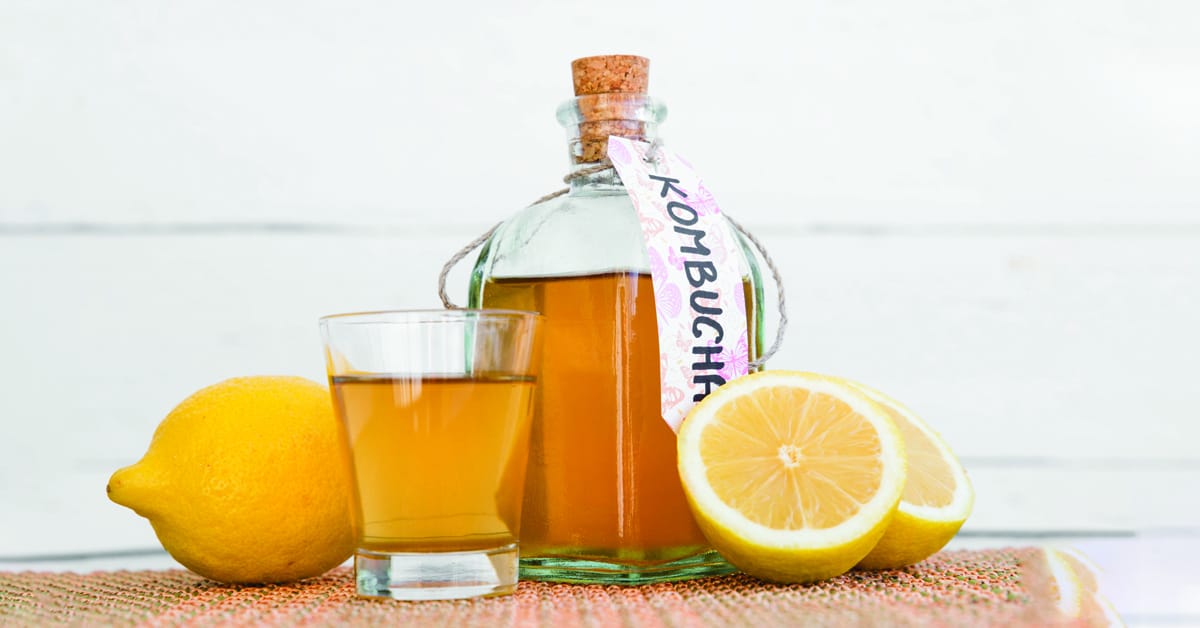This Dr. Axe content is medically reviewed or fact checked to ensure factually accurate information.
With strict editorial sourcing guidelines, we only link to academic research institutions, reputable media sites and, when research is available, medically peer-reviewed studies. Note that the numbers in parentheses (1, 2, etc.) are clickable links to these studies.
The information in our articles is NOT intended to replace a one-on-one relationship with a qualified health care professional and is not intended as medical advice.
This article is based on scientific evidence, written by experts and fact checked by our trained editorial staff. Note that the numbers in parentheses (1, 2, etc.) are clickable links to medically peer-reviewed studies.
Our team includes licensed nutritionists and dietitians, certified health education specialists, as well as certified strength and conditioning specialists, personal trainers and corrective exercise specialists. Our team aims to be not only thorough with its research, but also objective and unbiased.
The information in our articles is NOT intended to replace a one-on-one relationship with a qualified health care professional and is not intended as medical advice.
Probiotic Drink Benefits, Plus How to Make Your Own
February 23, 2019

The probiotic drinks category is one of the fastest growing trends in the functional foods and beverages market, due to increasing consumer demand for products made with natural, beneficial ingredients, particularly those that contribute to gut health. Even major companies including PepsiCo are jumping on the probiotic drinks bandwagon; in 2016, PepsiCo acquired KeVita, a sparkling probiotic beverage brand that’s now available in most major grocery stores.
If you’re new to probiotic drinks — which include beverages like kombucha, kefir and kvass — you might be surprised to know how many options are now available. What is a probiotic drink good for? As detailed more below, probiotic drink benefits include: supporting digestive and gut health, helping to fight bacterial infections, and supporting the immune system.
Related: What Are Probiotics? Types, Foods, Supplements and Benefits
Probiotic Drink Benefits
Probiotics, or “good bacteria” (defined as “microorganisms introduced into the body for their beneficial qualities”), are types of live bacteria and yeasts that are beneficial for the digestive system and immune system.
Today there are several different types of probiotic drinks available in grocery stores:
- Dairy probiotic drinks, mainly kefir or “drinkable yogurt.” Kefir differs from yogurt because it’s made with kefir grains and usually contains different strains of beneficial gut bacteria. Many studies have found that kefir has antimicrobial, antitumor, anticarcinogenic and immunomodulatory activity and also improves lactose digestion.
- Tea and fruit-based probiotic drinks, most of which are called kombucha, made with tea, sugar and yeast. Kombucha is a good probiotic drink option for those who are lactose intolerant or sensitive to dairy.
- Fermented grain-based juices, such as kvass, which is a traditional Slavic and Baltic beer-like beverage that has a sour taste and is commonly made from fermented rye bread.
- Fermented vegetable-based juices, such as those made from the juice of green cabbage or red beets.
- Cultured coconut drinks, also called coconut kefir, made with coconut water and kefir grains.
- Water kefir, a fermented beverage that is made by adding kefir grains to sugar water. This mixture is then left to ferment for 24–48 hours. This helps create a fizzy, probiotic-rich beverage that’s brimming with benefits. Water kefir is dairy-free, thinner than traditional kefir and often flavored using fruit, veggies, herbs or spices.
- Probiotic-infused waters, which are basically flavored waters that have supplemental probiotic strains added to them. Depending on the brand, other beneficial ingredients like lemon juice, ginger, cayenne pepper or apple cider vinegar may also be added.
Each type of probiotic beverage is different thanks to the various probiotic strains it contains. Specific strains of lactic acid bacteria, in particular the type called Lactobacillus, have been extensively studied as health-promoting probiotics. In addition to certain beverages, probiotics are found in probiotic supplements and fermented foods — including yogurt, sauerkraut and other cultured veggies, tempeh, natto and miso (fermented soybeans).
Probiotic foods and drinks have been included in traditional diets for hundreds of years, including those that originated in North America, South America, Europe and the Middle East. For example, kombucha is believed to have originated in Chinese and the Far East around 2,000 years ago, while kefir, which gets its name from the Turkish word for “good feeling,” has been consumed throughout Europe and Asia since Biblical times.
Below are some of the many benefits associated with probiotic drinks:
1. Support Gut Health & Aids Digestion
The probiotic benefit that has been most extensively studied is the ability of probiotic bacteria to improve gut functionality. Probiotics have been shown to help support intestinal tract health and to make nutrients more absorbable and available.
The reason they are prized for digestive health is because they help maintain the natural balance of bacterial organisms in our intestines, crowding out harmful germs that can lead to sickness or symptoms like bloating, diarrhea, constipation, irritable bowel syndrome, etc.
2. Fight Infections & Chronic Diseases
Probiotics are capable of strengthening the immune system and building defenses against many illnesses. Regularly including fermented products in your diet may increase protection against common infections such as yeast infections and urinary tract infections. Certain high-quality probiotic drinks, such as kvass made with beetroot juice, can provide antioxidants and naturally help cleanse the gallbladder, improve bile flow, and support the liver in detoxifying the body.
Additionally, by boosting nutrient absorption and fighting free radical damage and inflammation, probiotics may help prevent symptoms associated with digestive disorders, skin issues, candida, and frequent colds and flus. Additionally, probiotic foods and beverages have been shown to exhibit antihypercholesterolemic and antihypertensive effects, benefitting heart health.
3. May Help Enhance Mental Health
Did you know that the digestive system is the second largest part of the neurological system and often called the body’s “second brain”? Healthy probiotic bacteria aid in the synthesis of neurotransmitters and other compounds that contribute to a positive mood and mental health.
Probiotics may also help fight leaky gut syndrome and inflammatory responses that can mess with your mood and contribute to symptoms like anxiety or fatigue.
4. Can Help Reduce Risk for Allergies/Sensitivities
By strengthening the immune system and helping to seal the GI tract, preventing leaky gut, consuming probiotic drinks and foods may help to reduce symptoms of lactose intolerance and decrease the prevalence of food allergies.
5. Also a Good Source of Other Nutrients
Many probiotic drinks are not only a great source of gut-friendly bacteria, but also a good way to get some protein, calcium, vitamin B12 and other nutrients (depending on the kind). For example, kefir and drinkable yogurt supply a number of important minerals, healthy fats and protein, while fermented vegetable juices supply antioxidants and vitamins like vitamin C. During fermentation, kombucha becomes carbonated and winds up containing B vitamins, enzymes, and a high concentration of beneficial acids (acetic, gluconic and lactic).
Do probiotic drinks help you lose weight? It’s possible that drinking probiotic beverages instead of sugary drinks like soda, juice or beer may lead to weight loss. Probiotic beverages like kombucha tend to be lower in sugar and calories than many other bottled, sweetened drinks. However most people consume probiotic drinks is to help replenish healthy bacteria in their guts, rather than to cut calories.
Best Types of Probiotic Drinks
Best probiotic drinks list:
- Kefir (preferably unsweetened, organic and made from goat’s milk which is easier to digest)
- Drinkable yogurt (preferably unsweetened and organic; look for the “Live & Active Culture” seal to ensure probiotics are present)
- Kombucha (look for a brand that’s low in sugar)
- Coconut kefir
- Probiotic-infused waters (choose those lowest in sugar or made with stevia extract)
- Kvass (for a more pleasant and sweet taste, try kvass made with strawberry juice, beat juice or herbs)
If you live outside of the U.S., you may be familiar with the probiotic drink called Yakult. Yakult, an Indian company that exports a high volume of probiotic drinks to other countries, is considered to be a “key player” in the international probiotics drink market, although their products are not the easiest to find in the states. They make probiotic drinks from ingredients like skim milk or regular milk, sugar and “natural flavors”, similar to yogurt or kefir, however because they include added sugar they may not be the best choice.
To get the most benefit from probiotic drinks, do some research on your favorite brands and always read the label carefully. Look for a product that mentions the strains of probiotics it contains as well as the CFUs (colony forming units).
How to Make Your Own Probiotic Drink
Each type of probiotic drink is made somewhat differently, although most follow the same general process. Probiotic drinks are made with colonies of bacteria and yeast that are responsible for initiating the fermentation process once combined with sugar.
While making fermented drinks takes some patience, they are easy to make and call for simple ingredients. Depending on the type of probiotic drink you choose to make, you’ll need a base (such as milk, beet juice, coconut water, tea, etc.) plus some type of yeast, kefir grains or starter agent (such as a “SCOBY”, or symbiotic culture of bacteria and yeast that;s used to make kombucha).
You’ll also usually need to add some extra water and usually salt or sugar. (Side note: Don’t worry about the sugar content of most probiotic drinks that don’t have added sugar, since most of the sugar will be turned into beneficial acids during the fermentation process.)
Here are a few helpful tips for making your own probiotic drink:
- A warm place in your kitchen (about 76–78 degrees) can help with the fermentation process needed to create probiotic drinks.
- Use water that is pure and chemical-free to prevent bad bacteria from forming in your drink as well as the good bacteria you want. Filtered spring water is best. If you use tap water, make sure you eliminate the chemicals by boiling or by leaving the water out overnight so the chlorine can evaporate.
- Ideally use organic ingredients, such as organic tea, vegetables, fruits, grains and sugar. If you’re using vegetables and fruits, make sure they are fresh and peel them to help rid them of possible pesticide residue. Chop veggies/fruits into one- to two-inch chunks, but don’t shred them.
- Store your probiotic drinks in glass bottles with screw-on tops or another top that has a tight seal. This helps keep the drinks fresh and preserves the slight effervescence and sour taste of most probiotic drinks.
- In order for fermentation to occur, you’ll need to allow your probiotic drink mixture to sit out for anywhere between 1–10 days, depending on the type of drink and flavor you’re looking for. Less time produces a weaker and less sour taste, while a longer sitting time makes the drinks ferment even longer and develop more tartness.
- Once you’re happy with the taste, put your drink into smaller glass bottles and refrigerate it for at least 24 hours to allow it to cool and finish carbonating.
Homemade Probiotic Drink Recipes:
- Homemade Kombucha Recipe
- Homemade Kefir Recipe
- Homemade Water Kefir Recipes
- Homemade Kvass Recipe
- Homemade Yogurt Recipe
When should you drink a probiotic drink? Any time of day you choose. Some experts recommend taking probiotic supplements on an empty stomach to help with absorption, however probiotic drinks and foods can be consumed whenever it’s convenient. If you’ve recently taken antibiotics, this is a great time to consume more probiotic drinks and foods, since they help restore balance of gut bacteria and may help treat antibiotic-induced symptoms like diarrhea.
To avoid any negative side effects, the common recommendation is to start by drinking very small amount of probiotic drinks and work your way to larger quantities. Most people prefer to have between eight to 16 ounces per day.










